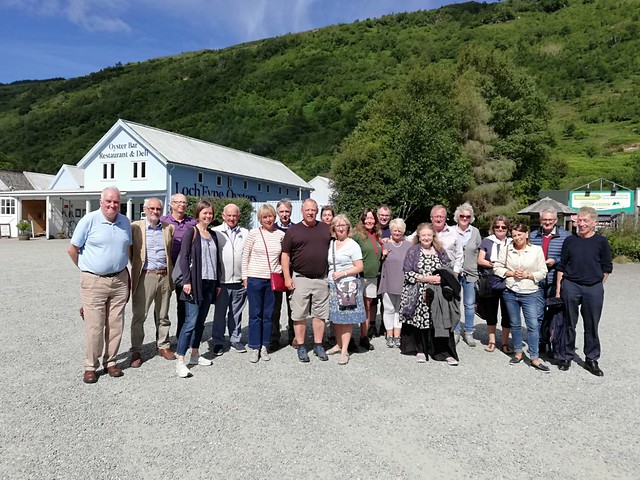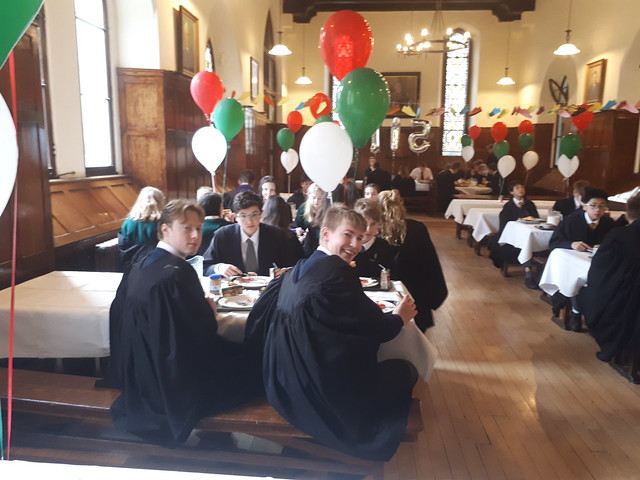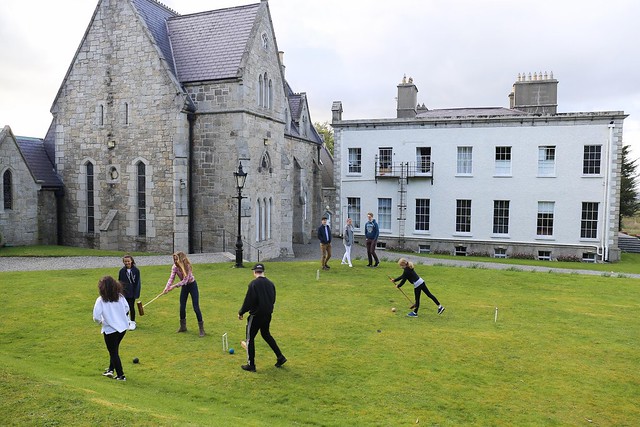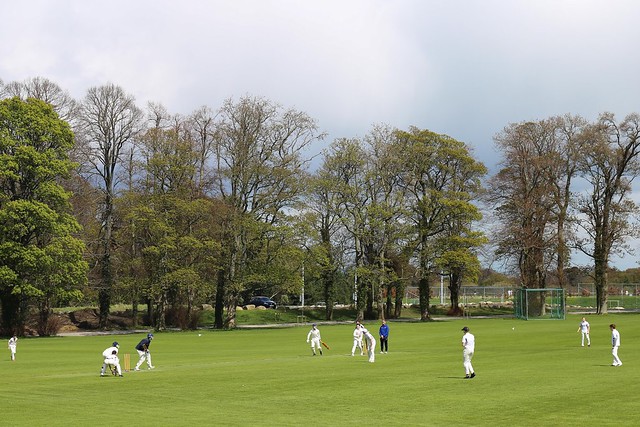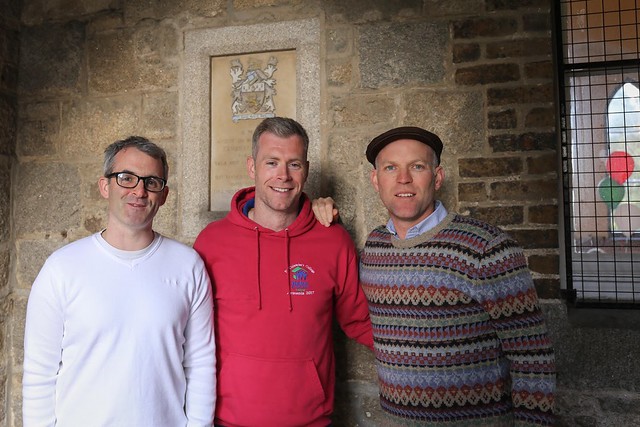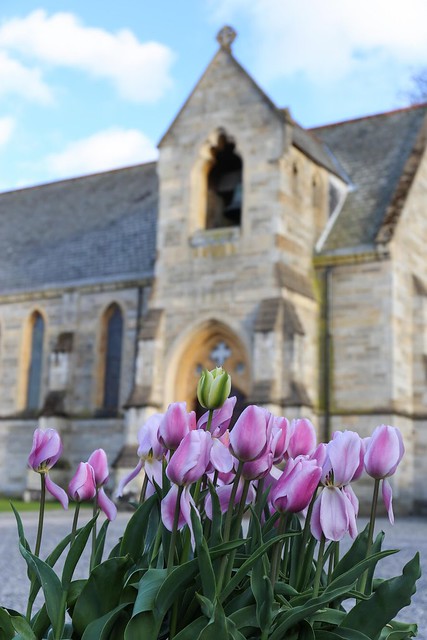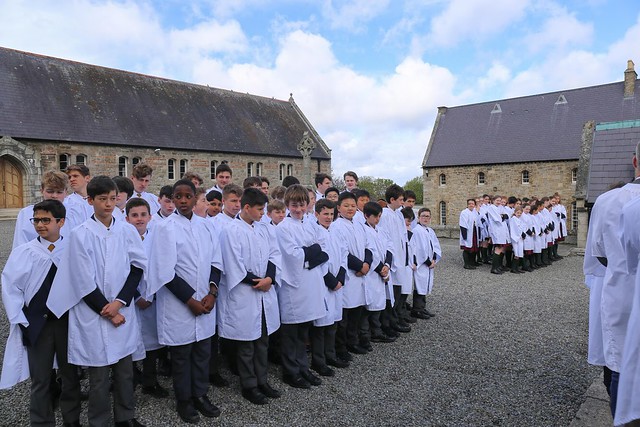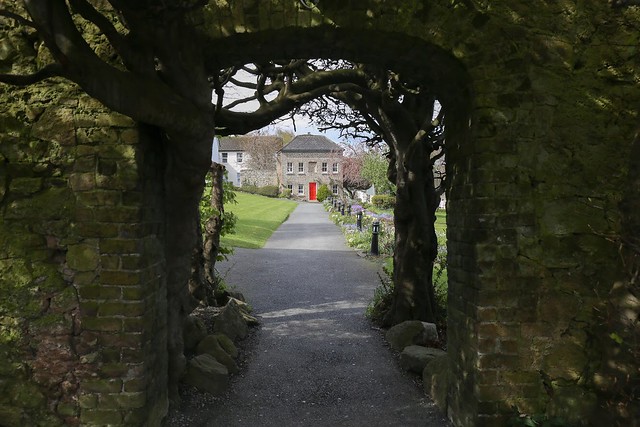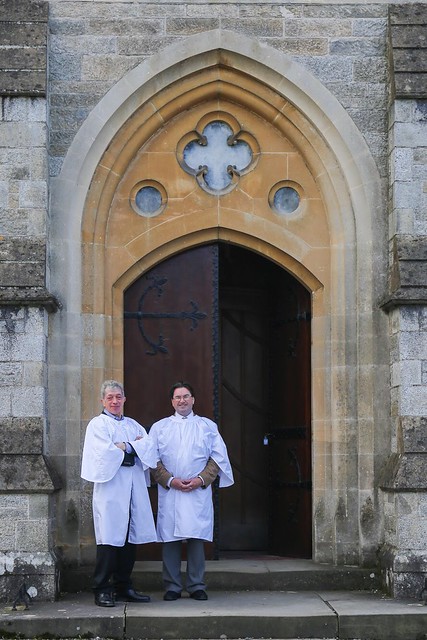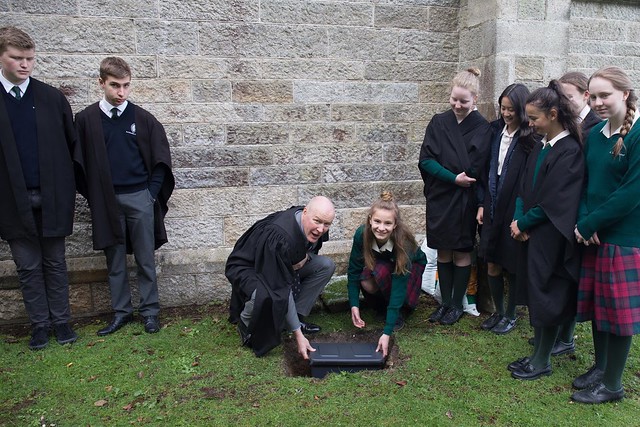July 3rd 2018
Somewhere way back, when we were first putting together the plans to celebrate 175 years since the foundation of St. Columba’s College, I had the idea that after all the balls and receptions and drinking and partying we should finish it all off with something that reminded us of our very beginnings back in 1843 and take a pilgrimage to Iona, the place most closely associated with Columba himself, after whom the College is named. It all seemed like a good idea at the time!
Some people will know all about Columba, one of the three patron saints of Ireland, along with St. Patrick and St. Brigid. Many will not. Born into a royal family in 6thcentury Ireland, he gave up his royal position in order to become a monk at a time when Ireland was, for the only time in its history, the centre of scholarship, learning and spirituality in Europe, following the collapse of the Roman Empire. However, in 563 AD, a battle was fought following a copyright dispute over the ownership of a Bible, and Columba, ashamed that he had not prevented the bloodshed, imposed on himself a penance, to go into exile from his beloved Ireland and take the gospel to Scotland, then inhabited by the pagan Picts.
The story goes that he set off in a leather coracle from the north coast, probably from somewhere near Derry, where he had established a monastery, accompanied by a band of fellow-monks. He landed initially either on Islay or the Mull of Kintyre but as he could still see Ireland he decided to carry on and reached Iona, a tiny island off the shore of Mull. Here he was granted land to establish a new monastery, which became the epicentre of outreach into Scotland, where the monks travelled to convert the Picts and ultimately brought their faith right down into the north of England, where they founded settlements such as that on Lindisfarne, off the coast of Northumberland. As they say, the rest is history.
The plan therefore is to retrace the exile of Columba and sail from Ireland to Iona, where we will celebrate our heritage with a service in the Abbey, tour the island and experience a tiny slice of what inspired Columba and his early followers. As it happens, before anyone tells me that our voyage is not following the original route, we are sailing directly to Iona from Tory Island, on the northernmost tip of Donegal, a distance of about 100 miles and 24 hours, weather dependant…it could be shorter or a lot longer! When we arrive we will be met by a group of 25 fellow pilgrims, a mixture of staff, Fellows, Old Columbans and parents, who will be travelling by the land route, leaving on the following morning: fly to Glasgow, bus to Oban, ferry to Mull, bus to Fionnphort, ferry to Iona.
I am grateful to a few people as mad as myself for making this trip possible. My wife Cathy for planning the overland trip and the stay on Iona; Ted Sherwood, who has been just as enthusiastic about this caper as I am; and Dr. Michael Brogan, a wild-eyed doctor from Donegal, whose boat, the MacDuagh (named after Saint Colman MacDuagh – a contemporary and apparent friend of Columba), a 40 foot Galway hooker, is our own leather coracle for our exile. Luckily he is skippering the boat and bringing his own crew to guide us across the Atlantic.
Let me introduce my merry band of monks, 2018 style:
- Ted Sherwood (Former Head of Geography at SCC)
- Jenny Bulbulia (Old Columban and Current Fellow)
- Trish Dunlop (Current Parent)
- Ian Dunlop (Current Parent)
- Jane Caldwell (Wife of the Chairman of the Fellows)
We meet tomorrow morning, Wednesday 4thJuly, at 9.30 a.m. to drive up to Donegal to meet the MacDuagh. In my luggage I will have three items: a bottle of whiskey to present to the King of Tory Island, who will then bless our voyage, a leg of lamb, to be roasted on the journey (don’t ask me how…), and the Mioseach. This last one needs an explanation.
In 1843, when the College was founded, one of the founding Fellows presented the College with the Mioseach, a very early Celtic Christian artefact, a book shrine, for holding a Bible or psalter. This box was so valuable that it was loaned to the National Archaeological Museum, where it still sits, while a perfect copy was made, which sits in the Warden’s study at the College. The original was sold to the Museum in 2004 for 1.5 million euros! The copy will be on board, not the original!
So there we are. I will send updates whenever possible and a few photos.
July 6th 2018
We meet at 9.30 a.m. by the sports hall for the off. Wonderful to be presented with a pennant by Terry and Rosie Johnson, with SCC 1843 on it, to be attached to the mast of the Mac Duagh. The drive through Donegal is glorious and we arrived at the Tory Island ferry in good time. We are met on Tory not only by the Mac Duagh and its crew but by the King of Tory himself. He does not disappoint. He has been King for 50 years and regales us with endless tales. He is delighted with his bottle of whiskey but disappointed that we are not staying for the craic in the evening, which is due to start at 10.00 p.m.
The Mac Duagh is a fantastic boat. Originally built about 140 years ago it was fully restored in the 1970’s by Dr. Michael Brogan and is one of the small remaining class of Galway hookers. He and the older two of his companions have negotiated the north west and the north east passages together so we are not in the hands of amateurs! As it turns out that is a good thing.
We set off at 7.00 p.m. and are soon joined a school of porpoises, who have come to check us out. At that point I begin to feel distinctly nauseous and continued to do so for the next 15 hours! My visions of sipping a cool drink on deck, while watching the sun set were dashed! It was not a happy night. Those early Irish monks must have been made of stern stuff and I am delighted that I did not follow through on my early plan to row a leather coracle across the Atlantic. In the morning I am told that the crossing has been surprisingly rough and I am not the only one to have been struggling. Perhaps everyone is trying to make me feel better! By the time I am feeling vaguely human again we are approaching Iona and for the last two hours it is a sheer joy to sit on deck watching the islands slide by and cruising gently into Iona. We arrive at about 1.00 p.m. but stay on board for a further three hours cooking the lamb and snacking on crabs claws and lobster. Thankfully they stay down.
Meanwhile the larger party meet at Dublin Airport in the wee hours and everything goes like clockwork. They arrive at about 4.45 p.m. on Iona and we are there to welcome them. We are staying in the St. Columba Hotel just by the Abbey, a hotel with a fantastic view of the sound. What a place this is! A lovely dinner, then an introduction to Columba himself from our very own Adomnan (Columba’s biographer), Richard Brett, who has set the scene for the two days ahead. Then impromptu music for a couple of hours in the lounge, with Michael Brogan on the fiddle, another of the crew on the squeeze box and one of the waiters joining in with his fiddle! A few contributions from the floor are also added. A great night and much to look forward to in the days ahead.
July 7th 2018
We meet mid-morning for a tour of the island, strolling off to the other side of the island. Some then choose to carry on to the far south to St. Columba’s Bay, where the saint is said to have first landed back in 563. Small green stones on the beach are said to be the tears of Columba, weeping for his beloved Ireland. Others return to the pier to have a ride out in the MacDuagh. A great day with lots of leisure time too. One of the dinghies coming in from the boat is accompanied by dolphins at touching distance. Another good dinner and then a singing competition between the tables. We rope in a couple of visitors to act as judges, much to their own astonishment and good humour. My table was definitely the best but some misses out on the big prize. The evening then turns quite lively and noisy and goes on and on…I am not sure when or if everyone gets to bed. Happily with a group of adults that is not my problem.
The next morning we meet early and get the boat to Staffa, a small island about 30 minutes up the coast, the home of the extraordinary Fingal’s Cave, immortalised by Mendelssohn. Again we are investigated by dolphins. The island has the most amazing basalt columns and massive caves, with nesting puffins as well. I hate to say it but it is much more spectacular than the Giants’ Causeway! A truly memorable visit in the most serene conditions. Wow, this place is beautiful! We can see north to Skye and south to Islay, west to Tiree and Coll, while everything to the east is Mull. But we could return a hundred times and never get the same benign conditions. We are truly blessed. In case one gets the impression that being a monk in the 6thcentury was a piece of cake in an idyllic paradise, it is worth remembering that for much of the year this place is bleak in the extreme and not for the faint-hearted. For now we are not complaining.
After lunch we all traipse off to the Abbey for a service of thanksgiving. The Abbey dominates the community, watching over the sound, while on the way one passes the graveyard which supposedly contains the graves of many of the kings of Scotland as well as some of the Norse kings. Macbeth is said to be buried there although it is impossible to know. A simple service, magical, simple, profound, a really special time, led by Daniel Owen, a short talk by Ninian Falkiner, lovely hymns. It has been good to remind ourselves of our spiritual heritage and our spirits have been uplifted and fed.
A few of us slope off to watch England beat Sweden in the World Cup quarter final…another spiritual experience.




